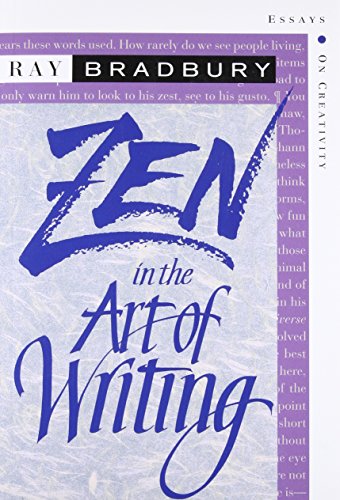
Everyone knows that baseball players and football players have coaches … but writers?
The romantic stereotype of a writer is of a solitary creature, pounding away at a typewriter (or computer keyboard) in a boarding house in Oxford, a riad in Tangier, or a cafe on the Seine, only emerging when the masterpiece is read for an adoring, reading public.
The “Acknowledgements” section in the front or back of every book tells a different story. The author unfurls a laundry list of gratitude—the spouse, the children, the agents, the editors, the beta readers. One person might very well be the writing coach.
Anyone who attempts a feat of excellence—training for the Olympics, starting a business, building a healthy marriage—knows the benefits of a coach. Writing is no different.
You don’t have to go it alone. Let’s talk about hiring a writing coach for your next book … or your first book.
What Does A Writing Coach Do?
A writing coach meets with clients—that is, aspiring and even professional writers—in person, on the phone, or by teleconference. During those meetings, (s)he helps the client create and implement a plan to write a book.
Depending on the experience of the author-client and the stage of the project, this coaching could take several forms, including but not limited to:
- Sorting through your motivations. Why do you want to write a book? Why now? Why this book or this idea? Without a strong “why” to propel you, it’s hard to see a challenging project through to completion.
- Listening to and giving feedback about the idea, the plot, the characters, anything the aspiring author might have brainstormed and needs a neutral opinion about whether or not it belongs in the book—or if the idea even has legs in the first place.
- Creating an outline that maps out a well-structured plot, with no holes, contradictions, loose ends, or dead ends. A strong outline to follow is one of the best tools to actually finishing a novel, especially a plot-heavy action novel.
- Setting a schedule, with accountability, to get a book draft done in 1-2 months. Imagine—the book idea you have been mulling for years moving from idea to draft in a matter of months.
- Advising the client on “platform-building”—a blog, an engagement-heavy Twitter account, anything to reach out to readers and build a following before or after the book is made available to the public.
- Advising the client on bringing the book to the public square, including advice on pitching the book to publishers and agents, as well as advice on self-publishing.
What qualifies a writing coach to give this advice? There’s no certification or specific schooling needed to become a writing coach. Presumably, the writing coach has experience in writing, ghostwriting, or in the publishing industry that establishes him/her as an authority in the space.
It’s up to the client to assess credentials or request references. It isn’t unreasonable for the potential client to request a consultation or free first session before committing to a fee agreement. After all, there are as many writer personalities as there are writers. You don’t want to commit to a writing coach, only to find out that you don’t like each other and hate spending time on the phone with each other. That’s just a waste of money—if you don’t respect or like your writing coach, you won’t take his/her advice to heart.
Some writing coaches are more appropriate for some genres than others. If you want to write a political thriller, make sure the writing coach you choose knows and loves that genre.
How Much Does A Writing Coach Charge?
As with everything in life, it depends. Writing coaches vary in terms of experience, track record, and credentials.
A writing coach who has advanced degrees, a long publishing history of his/her own, and a track record of shepherding several books to publication might justifiably command a higher price than a beginner.
However, a beginning writing coach with some tools and training may not be useless. If you gel with his/her personality and can learn a few things from them, the accountability and the strategies may be the best elements and you can furnish the missing pieces in other ways.
Generally speaking, a writing coach might charge an hourly rate of $75 to $125. Others might charge monthly retainers with set schedules, ranging from $500 to as high as $3,000.
What’s The Difference Between A Writing Coach And A Development Editor?

There’s more than one kind of writing professional willing to help you for a fee. Make sure to check whether or not the vendor you’re talking to is a writing coach or a development editor.
A development editor isn’t someone you hire early in the process of writing a novel; it’s someone you hire after you have written the novel. You have a stack of manuscript pages (or a big Word document) that you have labored over for months or years.
That’s your blood, sweat, and tears poured into that manuscript. Objectivity is impossible. You have no idea whether it’s good or bad. Some parts you re-read and feel like a genius; others make you embarrassed for letting down the kindergarten teacher who taught you how to spell. You know you need to move from the first draft to a second draft, but you’re terrified of cutting out the best part or missing an opportunity to make the book better.
This is where a development editor comes in. The development editor is a neutral professional you hire to read your book and make suggestions on how to make it better as you proceed from one draft to the next. (S)he does more than just a copy editor, correcting spelling, etc. The development editor points out:
- Directions to take the plot.
- Ways to improve the character development.
- Plot inconsistencies that need to be fixed.
- “Bad writing” that can be corrected.
Note that the opinion of a development editor is only one opinion. The best route is to find someone who is a fan of your genre and the authors who have influenced you most closely. If your book is a mystery novel or a post-apocalyptic thriller, make sure your development editor loves mysteries or post-apocalyptic thrillers. This makes it most likely that (s)he will understand where you are coming from and make productive suggestions.
The time it takes for the development editor to plow through your novel is critical for you, as well. You need a break. In a month or two, you can come back to your manuscript with objective eyes and take up the project again.
5 Reasons to Hire a Writing Coach for Your Next Book
Still not convinced that a writing coach is for you? Turned off by the expense, think it might be unnecessary? Here are five reasons to seriously consider the investment in a writing coach as money well spent.
1. You Don’t Know Where to Start
Starting a big project can be the hardest part. You don’t want to get off on the wrong foot and write yourself into a corner halfway through the book. That being said, exactly zero people will read the books you never start.
A writing coach can help you get the project started on stable ground. (S)he can advise you on:
- Principles of sound plotting.
- Character development.
- Outlining.
- Setting a writing schedule.
The writing schedule might be the most important step. Have you been thinking about writing a novel for years? What if the first draft were done in 1-2 months? Professional writers, accountable to their editors, do it all the time. You might not have the book deal or the editor yet, but a writing coach can help you set the schedule and hold you accountable to it.
2. You Started, But You’re Stuck
You might have started a book, but written yourself into that proverbial corner. You went off your outline, or didn’t have one to begin with. Now you’ve sunk months into the project, and all you have to show for it is a half-finished book at a plot cul-de-sac you can’t write your way out of, or worse, that no longer interests you.
A writing coach can be the hero that pulls your book out from the rubble you buried it under. Your coach can approach your stalled novel with fresh eyes and suggest:
- Techniques to write your way through tough spots.
- New avenues the plot could take to credibly get you back on your outline.
- Ways to release you from feeling like a slave to your outline. Hint: most popular authors use the outline to start a book, but veer away from it at some point because they too want to see where it goes.
The schedule, the discipline of writing, remains critical at this stage. When the going gets tough, the tough get going. The job of the writing coach is to get you back on track, then provide you with accountability to keep you on track.
3. You’re Finished, But You Don’t Know What’s Next
You finished your book. Congratulations! That puts you in a club to which many are called and few earn entry.
Of course, written isn’t published, and it certainly isn’t read (outside of your close circle). What next? The struggle is real—few beginners without a book deal know what steps to implement to take the book to the next level.
A good writing coach has been there before and seen the process play out. (S)he can suggest next steps for your completed manuscripts, including
- Avenues to market your book.
- Strategies for pitching the manuscript to agents and publishers.
- What to do if a publisher offers to purchase your book.
- Considerations that might apply to self-publishing.
- When and how to start thinking about the next book.
You may think the hard part is over, but the work is just beginning. After the book is completed may be the phase when the advice of the writing coach is the most crucial.
4. You May Need to Write Two Books Before you Publish One
You may be justifiably proud of having finished your book, so this may come as bad news—you may need to write two books.Right? Nothing’s ever good enough. But the first book is the road to the second book, the second book the road to the third book, and so on. There’s virtually no scenario where that isn’t the case.
Consider:
- If you want a publisher to commit to a book deal, don’t expect them to commit to a “one-and-done.” Even if you aren’t cooking up the first book in a trilogy or series, they will want to know that they are investing in a writer who has more than one book in them. Nothing proves a writer has a second book in them like writing that second book, or at least having a good start.
- If you want to self-publish a novel, the same rules apply. You don’t have a publisher or editor holding you to account, but what if your book takes off? Attracts a big readership through Kindle downloads, etc.
What next? Will your newfound readers wait five years while you dither putting your next book together? Don’t count on it. They will forget every letter in your name and move on to the next self-published sensation.
Having a follow-up book ready to go helps you catch that lightning in a bottle and turn it into a sustainable fan base. You might even want to include sample chapters of your next book as a teaser at the end of your first book, to build excitement and buzz.
If the idea of starting all over again with a new book gives you heart palpitations, writing coach to the rescue! (S)he can give you courage for the long haul and help you get organized to tackle the next book. Remember, this is good news—the start of a lifetime, and a fulfilling career, as a writer!
5. A Writing Coach is Priced Competitively Compared to Therapy
Sure, everyone has a therapist nowadays, but how great are writers as consumers of therapy? All those characters’ voices are in their heads! Some aspiring writers spend more time in therapy than they spend actually writing.
If you have the writing bug, however, you know that there’s no mood stabilizer like writing. No matter what else happened in a day, if you got some writing done, it’s a good day. It’s a therapy you can have every day.
On the other hand, an unfinished book or an unrealized idea is an open loop, nagging at you, prodding you like a ghost with the guilt of unfinished business. Is it any wonder that writers are notorious for their neuroses?
Instead of more therapy, consider a writing coach as a more practical use of your therapy dollars. By holding you to account and arming you with strategies to move forward and establish writing as a discipline—a profession—you get your writing therapy every day. Every day is a good day.
With prices comparable to those of therapists, hiring a writing coach may be the most practical investment in your mood and wellbeing you ever made.
Best Reading Resources for a First-Time Novelist
Sometimes you don’t have to hire an in-person writing coach to get on the right track with your next book. What if, for a fraction of the cost, you could access the wisdom of some of the best-selling and most respected writers of all time?
Fortunately, several of them have written books on that very subject—memoirs, collections of essays, meditations and practical how-to books on the art and science of writing a novel. You could buy all eight of these books for less than one hour with a writing coach.
Of course, a writing coach may still be invaluable for the personal attention, accountability, and advice specific to your book. But these books are fantastic for getting grounded in the fundamentals.
Plotting Your Novel with The Plot Clock by Jamie Morris, Tia Levings, Joyce Sweeney
Amazon
Plotting Your Novel with The Plot Clock
Free shipping
Features
| Is Adult Product | |
| Language | English |
| Number Of Pages | 70 |
| Publication Date | 2019-04-04T00:00:01Z |
“So what happens next?” What a bedeviling question for a writer attempting a huge undertaking like a novel. What indeed. You have all these ideas, all these incidents, characters, maybe a hook point, conflict and a rough idea of where you’re going, but getting from Point A to Point B can seem like terra incognita—”Herre be dragons.” If you could just get to the next logical incident, the next escalation of the conflict, you could get to the promised land of your endgame. If only you had a map.
The collection of pros who wrote The Plot Clock want to give you that map, breaking down what needs to happen when in the context of a strong plot. This structure is especially useful for writers who don’t want to follow linear plotting, as the right time for a certain character development may not be when it happens in the chronological time space of the plot. The “plot clock” of the title is circular, like the face of a clock, and helps you decide the perfect place to drop twists, surprises, and insights for maximum impact.
I Should be Writing by Mur Lafferty
Amazon
I Should Be Writing: A Writer's Workshop
$2.46 in stock
15 used from $1.48
Features
| Release Date | 2017-08-22T00:00:01Z |
| Language | English |
| Number Of Pages | 160 |
| Publication Date | 2017-08-22T00:00:01Z |
How many times have you said ”I should be writing” to yourself? Yes, you know it’s true, but without a plan, the writing rattles around in your head as a free-floating anxiety, slowly driving you crazy.
Drawing on insights gained from interviews with Neil Gaiman, Adam Christopher, Gail Carriger, and many more, podcaster Mur Lafferty’s goal is to channel that free-floating anxiety into an engine of action by laying out an actionable plan for a life in the craft of writing.
This book is especially good for writers who don’t have the golden idea yet. It lays out writing exercises and prompts to get the creative juices flowing. It also debunks writing myths, offers practical advice for listening to your “inner muse,” and practical advice for ignoring your “inner bully.”
On Writing by Stephen King
Amazon
On Writing: A Memoir of the Craft
105 used from $2.42
Free shipping
Features
- writing advice from horror-meistro Stephen King, a fine softcover
If you have to listen to someone’s advice on how to go about building a career as a writer, why not start with the advice of the person who has sold more books than any human being ever? Known as the modern “master of horror,” Stephen King is actually a well-rounded popular fiction writer whose work encompasses several genres, not the least of which formed the basis for dramatic films like Stand By Me and The Shawshank Redemption. He has also written science fiction, fantasy, and nonfiction.
It’s hard to have a sense of imposter syndrome reading King’s chatty, folksy memoir of the craft. Forget 350 million copies sold—King makes it seem like anyone can do it. The behind-the-scenes look at his process reveals actionable steps, like his clockwork habit of writing at least 2,000 words per day and his tendency to avoid adverbs to keep his writing lean.
Other helpful explorations of “What Writing Is” and the writer’s “Toolbox” help demystify the profession,and do so in the words of an approachable and likeable practitioner who really knows the practice and art of writing.
Zen in the Art of Writing by Ray Bradbury
Amazon
Zen in the Art of Writing: Essays on Creativity
13 used from $7.49
Features
| Part Number | Illustrated |
| Is Adult Product | |
| Edition | 0 |
| Language | English |
| Number Of Pages | 176 |
| Publication Date | 1994-08-01T00:00:01Z |
Another guy who knows a thing or two about writing, Bradbury is a titan of the craft, one of the most respected novelists and short story writers, especially in the genres of horror, fantasy, science fiction, and dystopian literature. He’s the author of the classic novel Fahrenheit 451, but his short fiction is credited with bringing modern science fiction into the mainstream.
Published in 1990, this collection of essays is meant to give inspiration to his successors, to impart his wisdom of the craft to the next generation in a generous feat of vulnerability. Written between 1973 and 1990, the essays that make up Zen in the Art of Writing include such titles and subject matters as “The Joy of Writing,” “How to Keep and Feed the Muse,” “Investing Dimes: Fahrenheit 451,” and “Shooting Haiku in a Barrel.”
The Kick-Ass Writer by Chuck Wendig
Amazon
The Kick-Ass Writer: 1001 Ways to Write Great Fiction, Get Published, and Earn Your Audience
28 used from $2.70
Free shipping
Features
- Used Book in Good Condition
How can you turn down a title like that? Aspiring kick-ass writers will find a wealth of actionable advice in Wendig’s book, including the anatomy of a scene, ingredients of building suspense, how to create characters and avoid “writer’s block.”
It also includes tips on blogging, platform-building, and publication—nuts and bolts of the business of writing that help writers devise a strategy to push your book forward once the task of writing is done.
Most of all, Wendig’s conception of the “kick-ass writer” is a writer who doesn’t quit—who doesn’t leave a good idea unexplored, doesn’t leave a novel half-finished, and doesn’t leave a novel gathering dust in the drawer when it could be on a fast-track to readers’ eyes.
Bird by Bird by Anne Lamott
Amazon
Bird by Bird: Some Instructions on Writing and Life
$8.99 in stock
103 used from $0.95
Free shipping
Features
| Part Number | 21105983 |
| Color | Multicolor |
| Is Adult Product | |
| Release Date | 1995-09-01T00:00:01Z |
| Edition | 1 |
| Language | English |
| Number Of Pages | 256 |
| Publication Date | 1995-09-01T00:00:01Z |
New York Times bestselling author Anne Lamott frames her compendium of writing advice around the childhood story of a report her brother had to write on birds. He had months to write it, but procrastinated until the last day. Overwhelmed by the task, he had no choice but to approach the task “bird by bird.” It’s hard to write a book, but how hard is it to write about one bird? Write about enough single birds, and you have a report or a book.
Around this metaphor, Lamott builds a towering bible of advice, full of pearls like involving partners (writing coach, anyone?), tapping into childhood when everything was new, and odes to “shitty first drafts.” Whereas other books on this list give you nuts-and-bolts explanations and to-do lists, Lamott focuses on the craft of writing as a spiritual exercise, a critical perspective when it comes to getting your mind right about writing.
Steal Like an Artist by Austin Kleon
Amazon
Steal Like an Artist: 10 Things Nobody Told You About Being Creative
$8.40 in stock
100 used from $2.04
Free shipping
Features
- By artist and writer Austin Kleon
- A collection of positive messages and exercises to realize your artistic side
- A New York Times Best-seller
- 10 Things nobody told you about being creative!
- ERROR:#N/A
Good writers borrow from other writers. Great writers steal from them outright. We stole that line from Aaron Sorkin.
Pity the writer who won’t admit to having influences, as if that gives him/her credibility in their quest to create something new. Does such a person even like reading? Why not just invent words or a whole new alphabet? Give or take a Finnegan’s Wake, at the end of the day we are all writing in the same language and building on the work of our predecessors.
The truth is, every story has been told before and few people create something truly new. If they do, it’s either so unapproachable that no one wants to read it, or it happened by accident, without the writer intending to, and is still informed by influences (even if those influences are not obvious).
Steal Like an Artist is for the writer who loves to read and wants to be read. There’s no reason to be ashamed of your influences. You have your influences, and what your influences did before you can inform how you can do the same, but with your own spin that makes old ground fresh. Kleon makes a practical study in how to write the kind of book you want to read, one that will be adapted into the movie you want to see. Hollywood, here you come.


 Amazon.com
Amazon.com














